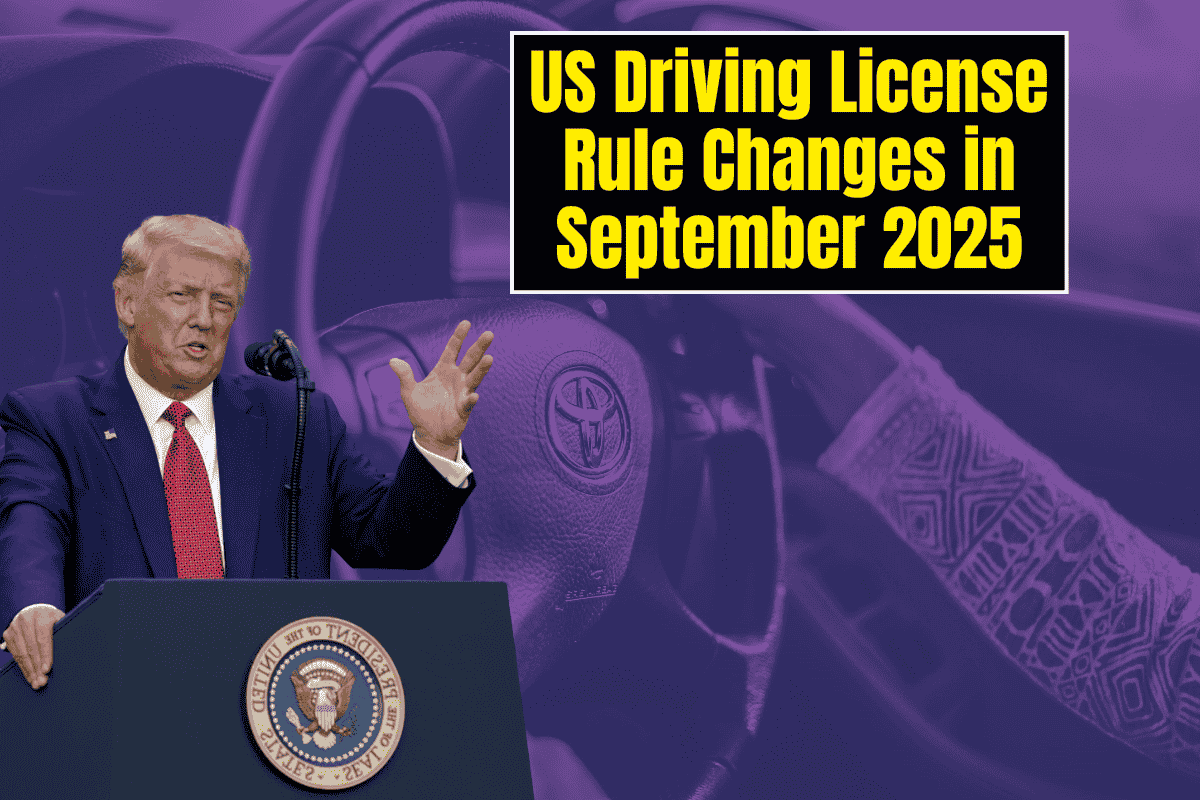New changes in the driving license in the United States! From now and then, we see some changes when it comes to driving. The most current change will happen from September 2025, since the U.S. Department of Transportation will implement a new national policy that will directly affect older drivers, particularly 70-year-old drivers and older.
The goal here is to improve road safety and respect the independence of seniors who still rely on driving for their daily lives.
With a population of older adults increasing a lot, the law looks for balancing safety and independence through a system of personalized evaluations. So, let’s find out more about these changes.
Why are these changes happening?
Currently, more than 48 million American people who are 65 or more have a driving license, and it’s expected this figure keeps increasing in the next decades.
For many people, driving is a crucial part of their lives: going shopping, going to a doctor’s appointment, or simply having a social life. However, the older people get, it’s normal to experience natural changes like slower reflexes, sight issues, or memory problems, that could affect road safety.
So, the new rule in the United States is thought to evaluate each driver’s real capacities in a fair way.
Main features of this new rule
The most important change focuses on how older adults will renew their driving license, since the system will be gradual according to the age group:
- 70 to 79 years old: Standard renewal, but with sight and reflexes test.
- 80 to 86 years old: Renewal in person every 2 to 4 years.
- 87 years old or over: Annual driving test and medical clearance.
Types of tests
According to the state and driver’s health conditions, it could be required different evaluations:
- Sight test: To check if sight is well enough to drive.
- Cognitive test: To measure memory, time of reaction, and capacity to make decisions.
- Practical driving test: Compulsory from 87 years old or in case of medical or family members doubts.
Can you report an older driver?
Sure. Families or citizens can report the Department of Motor Vehicles (DMV) if they think an older adult no longer drives in a safe way. In this case, DMV can ask for a re-evaluation, as long as the reports are based on real safety concerns and not personal conflicts.
Differences between states in the United States
Even though the rule will be federalwide, each state will have the right to apply it with their own adjustments. Let’s have a look at some examples:
- California: Renewals in person from 70 years old.
- Florida: Sight test is compulsory in each renewal from 80 years old.
- Texas: Annual renewals from 85 years old.
- New York: It can require a doctor’s note from 80 years old.
Restricted licenses
For those who still drive but with limitations, they will be offered restricted licenses with conditions like:
- Driving only during daylight hours.
- Driving only in local areas.
- Not to use highways.
This way, older adults still have independence without risking road safety.
Alternatives to driving in the United States
When it’s no longer safe to drive, older adults will have mobility options such as:
- Ride-sharing services such as Uber or Lyft.
- Community shuttle services and paratransit programs.
- Volunteer driver programs.
- Support from family and friends.
Driving is always a risky task because some drivers don’t follow the rules. In the United States, they are now focusing on older adults and examining when they are starting to lose driving capacities. However, this part of society won’t be left at home with no possibilities to drive anywhere, but they won’t be the ones doing it. Do you think the alternatives older adults in the United States are given are good enough?
FAQ Section
Q1: From what age will new driving license rules apply in the U.S.?
The new policy starts from age 70, with stricter renewal rules as drivers get older.
Q2: What tests will seniors have to take to renew their license?
Depending on age and health, seniors may face sight tests, reflex checks, cognitive assessments, or even a practical driving test.
Q3: How often will drivers over 87 need to renew their license?
Drivers aged 87 and above must renew their license every year, with both a driving test and medical clearance.
Q4: Can families report unsafe senior drivers?
Yes. Families or citizens can report safety concerns to the DMV, which may then require the driver to be re-evaluated.
Q5: What are restricted licenses for older drivers?
Restricted licenses allow seniors to drive under certain conditions, such as only during daylight or within local areas, to maintain independence while ensuring safety.













Safety?? Older drivers are better drivers than these young reckless drivers speeding around our streets and making backfiring noises!!!